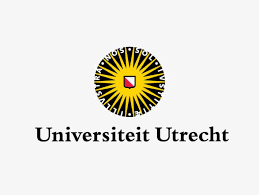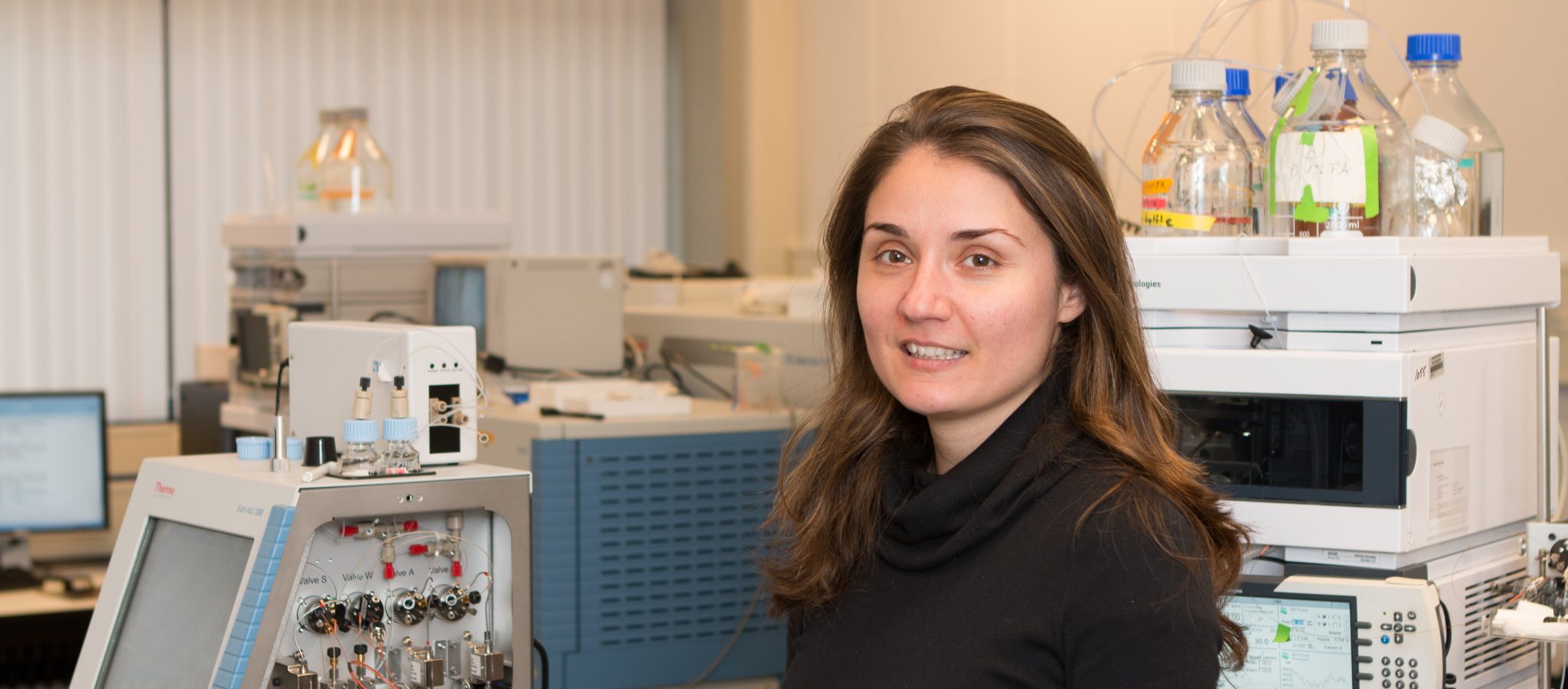
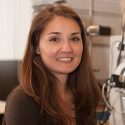 Liana Tsiatsiani, postdoc at the Biomolecular Mass Spectrometry and Proteomics group (Utrecht University) received a 2-year EMBO Long-Term Fellowship for her research proposal entitled ‘Proteases on demand’. The proposed research aims to exploit the proteolytic
Liana Tsiatsiani, postdoc at the Biomolecular Mass Spectrometry and Proteomics group (Utrecht University) received a 2-year EMBO Long-Term Fellowship for her research proposal entitled ‘Proteases on demand’. The proposed research aims to exploit the proteolytic
information encrypted in fungi, an excellent resource of high biodiversity, for the discovery of novel proteases with user-defined properties and tailored towards specific applications that may allow sequencing of complete proteomes and open up new avenues in medical protein research. The research will be performed in collaboration with the Fungal Physiology group of Prof. Dr. Ronald De Vries (CBS-KNAW).


Experts in proteomics from Utrecht University and next-generation DNA sequencing from the Hubrecht Institute/UMC Utrecht collaborated in a study to systematically determine the consequences of genetic variation on the transcriptome and proteome. The researchers applied ultra-deep quantitative proteomics, whole genome sequencing and RNA-seq to liver tissues from different inbred rat strains. One of these inbred rats, the spontaneously hypertensive rat (SHR), is a widely used disease model for hypertension.
Proteomics experiments are normally hampered by identification methods based on reference genomes. Therefore, the authors designed a personalized protein database for each rat strain examined. They did so by integrating small genomic variants detected by whole genome sequencing and novel splicing and editing variants detected by RNA-seq. This extra information, in combination with the use of 5 different proteases, to extend the proteome coverage, resulted in the largest proteome to date (~13,000 proteins), with over 30% more proteins identified in a single sample than the current standard. Also, hundreds of novel genes, editing sites and transcript isoforms were identified at the protein level for the first time.
Besides this impressive gain in protein identifications subsequent integrated quantitative RNA and protein comparisons provided interesting novel insights in disease biology. Four differentially expressed genes popped up that had previously been associated with hypertension. One of those genes, Cyp17a1, was previously identified as one of the top hits in human hypertension GWAS studies.
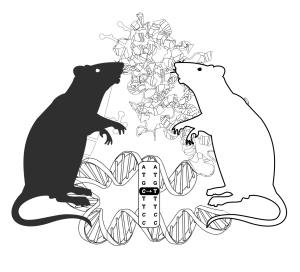 The identified link to hypertension is an illustrative example on how integrative genomics approaches can be used to dissect disease genes and mechanisms.
The identified link to hypertension is an illustrative example on how integrative genomics approaches can be used to dissect disease genes and mechanisms.
‘We have pushed the limits of current genomics and proteomics technologies’ says Prof Edwin Cuppen from the Hubrecht Institute and University Medical Center in Utrecht and one of the corresponding authors on the article. ‘Both in terms of the number of identified proteins as well as their characteristics at the RNA and protein. We demonstrate that the used techniques are now mature and can be used for routine integrative biology approaches to study effects of genetic variation on protein characteristics’
Prof Albert Heck from Utrecht University adds: ‘Our work shows that one plus one is more than two and that additional and relevant molecular details emerge when state-of-the-art technologies are combined. We predict our work to be a milestone, highlighting how next generation proteomics will be executed and can deliver new insights into disease biology.’
Link to the article on Cell Reports: http://www.cell.com/cell-reports/fulltext/S2211-1247(13)00640-2
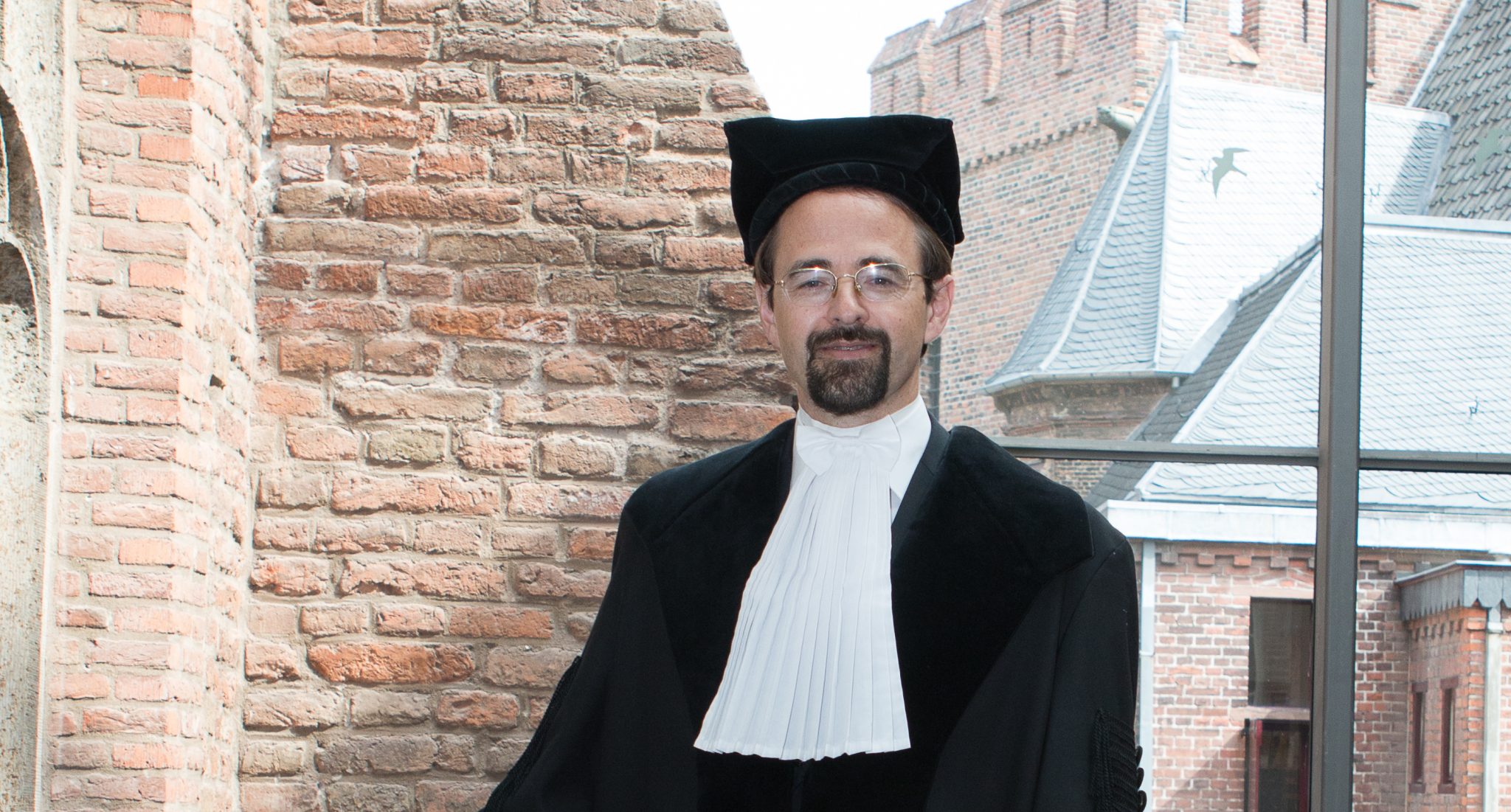
Utrecht University has appointed Dr. Alexander Makarov as Professor of High Resolution Mass Spectrometry at the Department of Chemistry and the Bijvoet Center. Makarov is Director of Global Research for Life Sciences Mass Spectrometry at Thermo Fisher Scientific. His appointment is a further strengthening of the close research collaboration between Thermo Fisher Scientific and the Biomolecular Mass Spectrometry and Proteomics group of Prof. Albert Heck as well as a valuable strengthening in the education of Life Sciences students at the Faculty of Science.
Physicist Alexander Makarov (1966), is the inventor of the Orbitrap mass analyzer, which changed the field of chemical analysis including proteomics. Since its introduction in 2005, Orbitrap-based mass spectrometers quickly conquered the research market and led to many breakthroughs in the field of physical, chemical and life sciences. The objective of the new chair is to research new applications to the analysis of large proteins and protein assemblies. This could allow detailed measurements of a range of biologically important species.
In the Bijvoet Center for Biomolecular Research at Utrecht University, pharmacists, chemists and biologists perform research and offer a research training programme on the relation between the structure and function of biomolecules.
The “Discovery Award in Proteomic Sciences” has been awarded by the Human Proteome Organization (HUPO) to Albert J.R. Heck, Professor at the Science Faculty of Utrecht University. Heck is also scientific director of the Netherlands Proteomics Centre and coordinator of the European proteomics infrastructure PRIME-XS and the NWO roadmap funded Large-Scale Proteomics Research Facility Proteins At Work.
The Discovery in Proteomic Sciences award recognizes a scientist for an eminent single discovery in the field of proteomics. Heck receives the award because he has implemented innovative mass spectrometric methods with a unique emphasis on protein post-translational modifications and interactions.
Heck will receive the award during a ceremony at the HUPO World Congress in Yokohama, Japan, September 18, 2013.
Past award recipients are amongst others: Carol Robinson, Steve Carr, Matthias Mann, Catherine Costello, John Yates, Ruedi Aebersold and Brian Chait.

On June 7th the Dutch magazine C2W published an interview with Albert Heck, scientific director of the Netherlands Proteomics Centre (NPC) and professor Biomolecular Mass Spectrometry and Proteomics, Utrecht University.
Click here to Read the interview

A new issue of the magazine of the Netherlands Proteomics Centre (NPC) has arrived! For the online version please go to the NPC website.
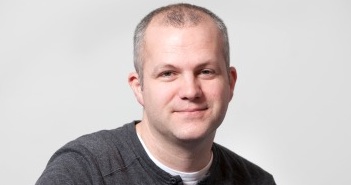
Maarten Altelaar, assistant professor of the Biomolecular Mass Spectrometry & Proteomics Group (Utrecht University) has been awarded a NWO-VIDI grant for his research proposal ‘Network Medicine; Quantifying Proteome Wide Crosstalk’. With the 800,000 euros for a five-year period, Altelaar can start his own line of research.
Understanding how living systems function is one of the fundamental goals in bio-molecular science. The molecular machinery controlling these functions is comprised of a highly complex collection of distinct molecules that act in coordinate fashion. The global analysis of proteins, representing the key functional entities in the cell, forms arguably the basis for understanding how cells function. However, gathering information at the proteome level poses a tough analytical challenge, when comparing it to data collection at the genome and transcriptome level. This is mainly caused by its highly multilayered character with alternative splicing and diverse posttranslational modifications (PTMs), further amplified by the dynamic interplay between PTMs and proteins in complexes and signaling networks. This interplay leads to so called ‘crosstalk’ mechanisms, where, if one node in the complex machinery is affected, other nodes respond either compensatory or inhibitory. Uncovering this extreme complexity is one of the challenges that drives proteomics research, which heavily relies on mass spectrometry based protein sequencing. With the here proposed developments in methodology, sample preparation and computational analysis, I will contribute to overcoming this challenge. I will develop and implement a unique combination of high resolution quantitative proteomics tools that allow the analysis of this dynamic proteome at system wide scales, while maintaining physiologically relevant conditions. The tools will focus on sensitivity, crucial when dealing with limited sample amounts, comprehensiveness, to tackle (PTM) crosstalk, and throughput, important when targeting many different sample types. As model system I will perturb the melanoma cancer proteome, using physiological relevant slow dividing cell lines, tumour tissue and patient derived xenografts, and monitor its response in the face of PTM expression, network rewiring and drug resistance. As many types of cancer are lacking proper treatment caused by limited understanding of the molecular mechanisms involved, the developed technology will be widely applicable.
Take a moment to view this brief Dutch film about NPC scientific director Albert Heck and his research group (Utrecht University)!
http://www.youtube.com/watch?v=Zm5-aKzezow
 Liana Tsiatsiani, postdoc at the Biomolecular Mass Spectrometry and Proteomics group (Utrecht University) received a 2-year EMBO Long-Term Fellowship for her research proposal entitled ‘Proteases on demand’. The proposed research aims to exploit the proteolytic
Liana Tsiatsiani, postdoc at the Biomolecular Mass Spectrometry and Proteomics group (Utrecht University) received a 2-year EMBO Long-Term Fellowship for her research proposal entitled ‘Proteases on demand’. The proposed research aims to exploit the proteolytic